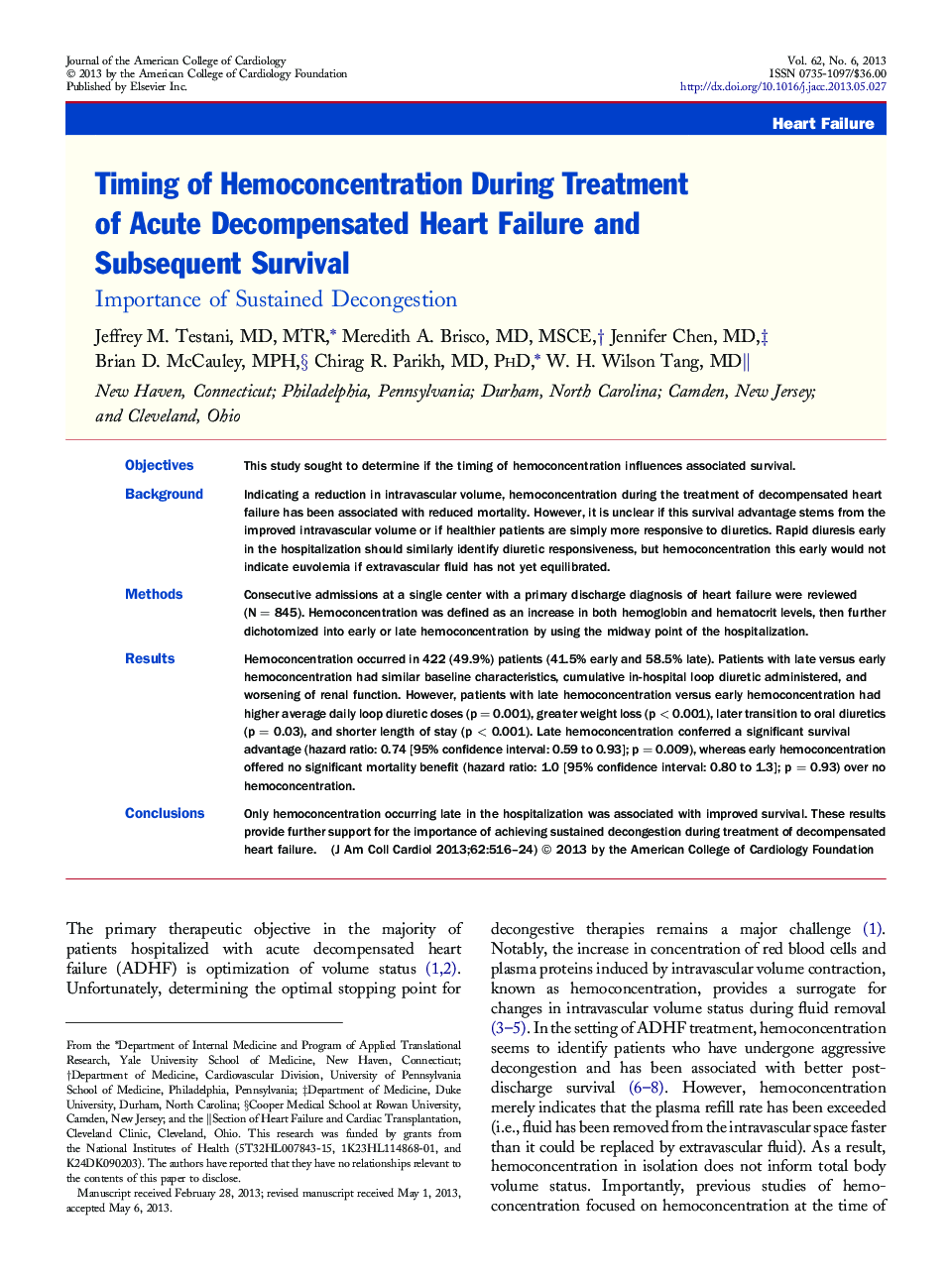| کد مقاله | کد نشریه | سال انتشار | مقاله انگلیسی | نسخه تمام متن |
|---|---|---|---|---|
| 2945834 | 1577147 | 2013 | 9 صفحه PDF | دانلود رایگان |

ObjectivesThis study sought to determine if the timing of hemoconcentration influences associated survival.BackgroundIndicating a reduction in intravascular volume, hemoconcentration during the treatment of decompensated heart failure has been associated with reduced mortality. However, it is unclear if this survival advantage stems from the improved intravascular volume or if healthier patients are simply more responsive to diuretics. Rapid diuresis early in the hospitalization should similarly identify diuretic responsiveness, but hemoconcentration this early would not indicate euvolemia if extravascular fluid has not yet equilibrated.MethodsConsecutive admissions at a single center with a primary discharge diagnosis of heart failure were reviewed (N = 845). Hemoconcentration was defined as an increase in both hemoglobin and hematocrit levels, then further dichotomized into early or late hemoconcentration by using the midway point of the hospitalization.ResultsHemoconcentration occurred in 422 (49.9%) patients (41.5% early and 58.5% late). Patients with late versus early hemoconcentration had similar baseline characteristics, cumulative in-hospital loop diuretic administered, and worsening of renal function. However, patients with late hemoconcentration versus early hemoconcentration had higher average daily loop diuretic doses (p = 0.001), greater weight loss (p < 0.001), later transition to oral diuretics (p = 0.03), and shorter length of stay (p < 0.001). Late hemoconcentration conferred a significant survival advantage (hazard ratio: 0.74 [95% confidence interval: 0.59 to 0.93]; p = 0.009), whereas early hemoconcentration offered no significant mortality benefit (hazard ratio: 1.0 [95% confidence interval: 0.80 to 1.3]; p = 0.93) over no hemoconcentration.ConclusionsOnly hemoconcentration occurring late in the hospitalization was associated with improved survival. These results provide further support for the importance of achieving sustained decongestion during treatment of decompensated heart failure.
Journal: Journal of the American College of Cardiology - Volume 62, Issue 6, 6 August 2013, Pages 516–524